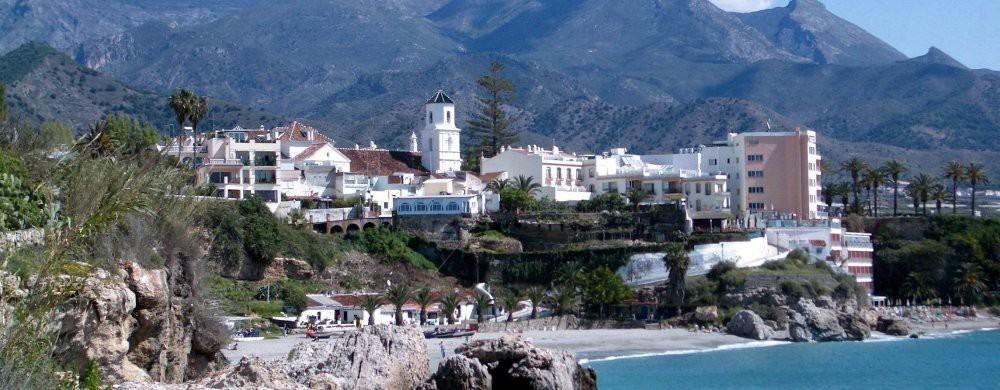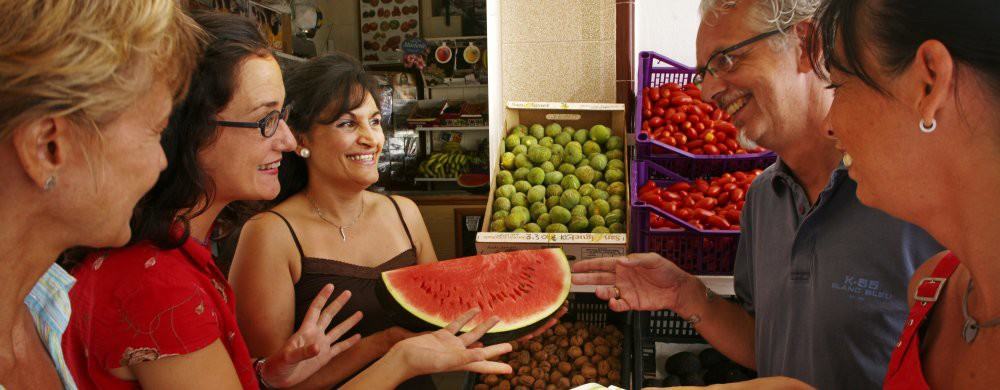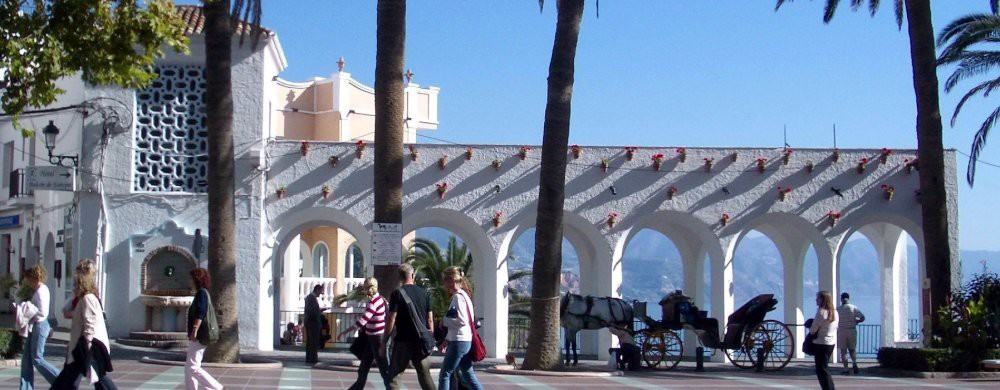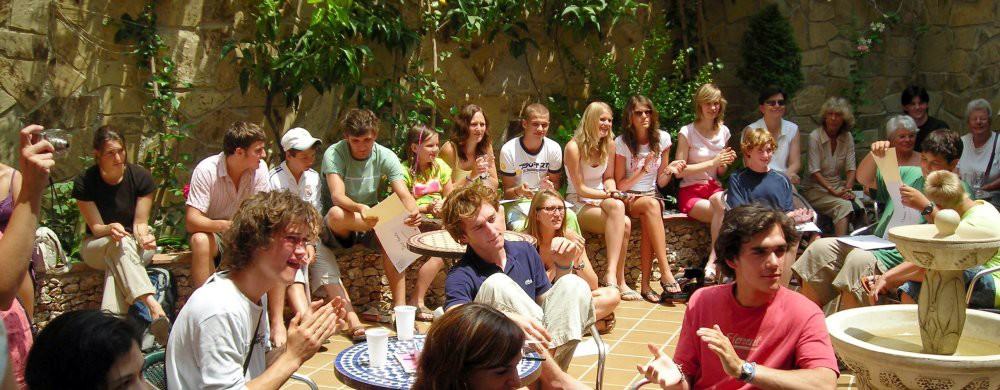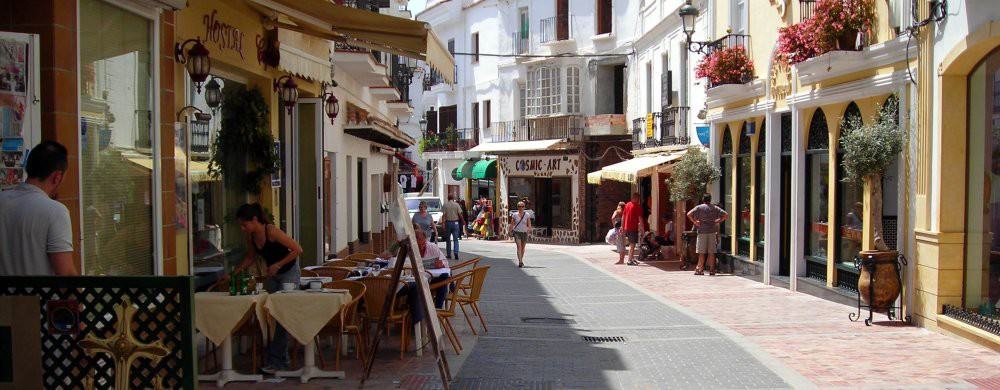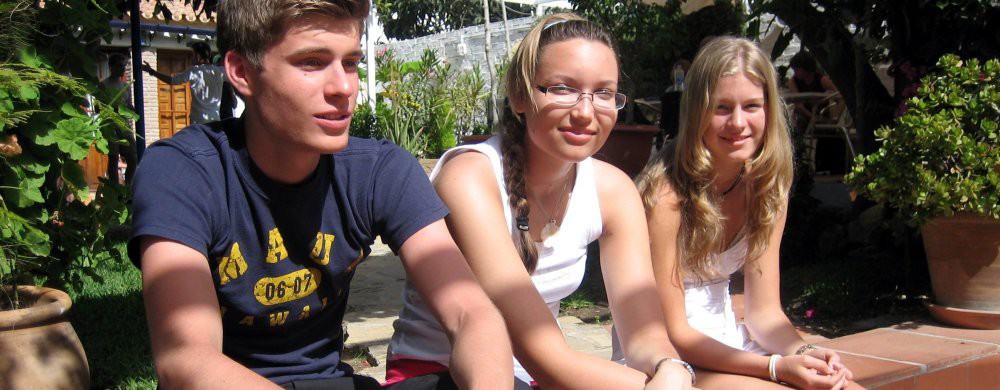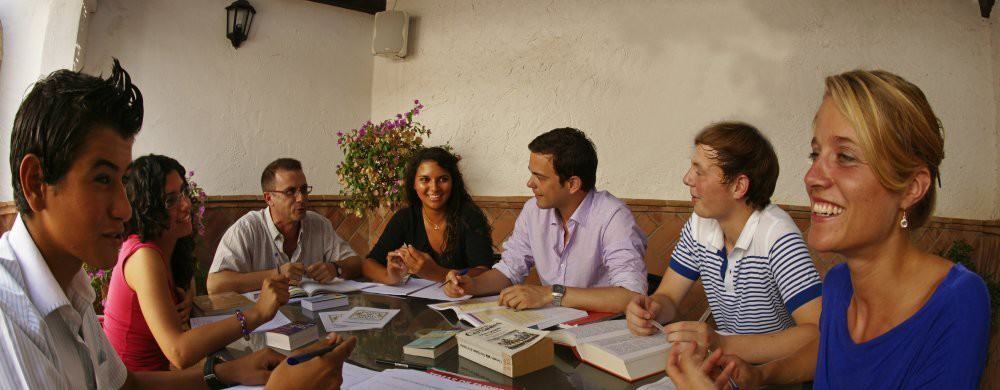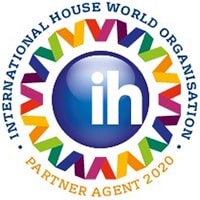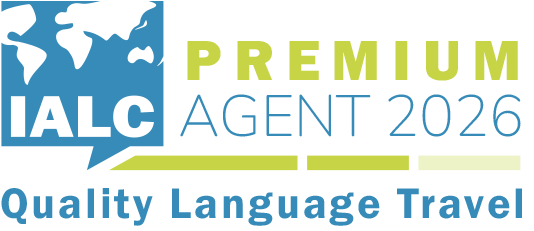Learn Spanish in Nerja: Teaching
Let’s get you talking Spanish in Nerja!
Spanish Teaching Methods
The primary focus is always to develop your Spanish communication skills, of course you will cover the four core skills of speaking, listening, reading and writing, with plenty of grammar and vocabulary work included in order to develop all the essential Spanish language skills during your course in Nerja. The methodology is the result of years of experience in the intensive teaching of Spanish. Special importance is given to the communicative aspect of the language and its use in everyday life. For this reason, the college encourages students to speak Spanish in class, during activities, and during their spare time in Nerja.
Study programmes for the Standard Course (20 lessons per week in groups having a maximum of 10 students) and Intensive Course (30 lessons per week in groups having a maximum of 6 students) are structured into the six learning levels proposed by the Common European Framework of Reference for Languages, namely, A1, A2, B1, B2, C1 and C2. In those cases where student level is A1, the specific course starting dates must be consulted. Where students’ already have some knowledge of Spanish, however, courses begin on every Monday of the year. Courses can have a duration of 1 up to a maximum of 32 weeks, according to individual need. The class timetable for Standard Courses may be in the morning or afternoon, in accordance with the timetable set by the School. Standard Courses are generally taught in the mornings (but there may be afternoon classes during the busiest weeks of the year.
Insofar as methodology is concerned, the School and the manuals that it uses follow a “Task-based approach”. Aside from the Communicative Method, the goal is “significant and real teaching” of Spanish.
Classes are taught exclusively in Spanish.
Assessment is continuous and, on completing a level every two weeks, students are required to do a progress test (or partial examination). Indeed, progress is monitored by means of a personalised follow-up conducted by teachers and the Director of Studies.
On finishing the course, each student then receives a certificate awarded by the school.
Language levels & rate of progress
Approximate number of lessons required to complete each language level, before progressing to the next level:
A1: 40 hrs, A2: 40 hrs,
B1: 80 hrs +, B2: 80 hrs +,
C1: 160 hrs +, C2: 160 hrs +
Basic Speaker.
A1
Can understand and use familiar everyday expressions and very basic phrases aimed at the satisfaction of needs of an immediate type. Can introduce him/herself and others and can ask and answer questions about personal details, such as where he/she lives, people he/she knows and things he/she has. Can interact in a simple way provided that the other person talks slowly and clearly and is prepared to help.
A2
Can understand sentences and frequently used expressions related to areas of most immediate relevance (e.g., very basic personal and family information, shopping, local geography, employment). Can communicate in simple and routine tasks requiring a simple and direct exchange of information on familiar and routine matters. Can describe in simple terms aspects of his/her background, immediate environment and matters in areas of immediate need.
Independent Speaker.
B1
Can understand the main points of clear standard input on familiar matters regularly encountered in work, school, leisure, etc. Can deal with most situations likely to arise whilst travelling in an area where the language is spoken. Can produce simple connected text on topics which are familiar or of personal interest. Can describe experiences and events, dreams, hopes and ambitions, and briefly give reasons and explanations for opinions and plans.
B2
Can understand the main ideas of complex text on both concrete and abstract topics, including technical discussions in his/her field of specialisation. Can interact with a degree of fluency and spontaneity that makes regular interaction with native speakers quite possible without strain for either party. Can produce clear, detailed text on a wide range of subjects and explain a viewpoint on a topical issue giving the advantages and disadvantages of various options.
Proficient speaker.
C1
Can understand a wide range of demanding, longer texts, and recognise implicit meaning. Can express him/herself fluently and spontaneously without much obvious searching for expressions. Can use language flexibly and effectively for social, academic and professional purposes. Can produce clear, well-structured, detailed text on complex subjects, showing controlled use of organisational patterns, connectors and cohesive devices.
C2
Can understand with ease virtually everything heard or read. Can summarise information from different spoken and written sources, reconstructing arguments and accounts in a coherent presentation. Can express him/herself spontaneously, very fluently and precisely, differentiating finer shades of meaning even in the most complex situations.
First Day
On the first day of their Spanish course in Nerja, students are given a written classification test and an oral interview to allocate them to the group best suited to their level. The school will also arrange for a pre-arrival written test, once you have enrolled (which can shorten the assessment process on the first day). Lessons will then start on the Monday morning, once the assessment for class levels have been completed. Beginners to the Spanish language will start their classes straight away on the Monday morning.
On your first day, the school will arrange a late afternoon presentation to enable students to get together and to discuss the forthcoming social events planned for the following days.
It may be that the Director of Studies establishes that there is just one student at a given language level, in this case, the Spanish school will offer the student a smaller number of private class lessons, in lieu of the full group lessons timetable.
Standard Spanish Courses include:
Written test of student’s initial level
Oral test of student’s initial level
Course presentation and classification by level
Every Monday, based on a morning timetable
Welcome and presentation of activities programme
Every Monday, based on an afternoon timetable
Continuous assessment
Certificate and Diploma
Seminars on Spanish Culture and Civilisation
School parties
Books for the courses are not included.
DELE Exam Details
| DELE Diploma in Spanish |
Framework of reference |
Level |
| A1 Diploma | A1 | Breakthrough |
| A2 Diploma | A2 | Waystage |
| B1 Diploma | B1 | Threshold |
| B2 Diploma | B2 | Vantage |
| C1 Diploma | C1 | Operational Proficiency |
| C2 Diploma | C2 | Mastery |
| Levels offered |
DELE Exam Dates |
Registration Dates |
| A1 – C1 | Mid April | Early March |
| A1 – C2 | Mid May | Early April |
| A2 – C1 | Mid July | Early June |
| A2 – B2 | Mid October | Early September |
| A1 – C2 | Mid November | Early October |
| Exam registration fee to be paid in Spain. Varies depending on exam level taken. |
||
Spanish Teachers
The intensive Spanish language courses are taught by degree-holding, certified professionals who are self-demanding and receive ongoing training.
Spanish Students
The School welcomes around one thousand two hundred students per year from over forty countries. Students, professionals, teachers and anyone who seeks a common goal: to learn to communicate in Spanish and share an enriching cultural experience.
Over 1000 students studied at the school in the last 12 months
Nationality mix:
German 16% Switzerland 19%
Scandinavia 17% USA 11%
United Kingdom 10% Austria 5%
Ireland 3.5% The Netherlands 3%
France 2% Canada 1.5%
Italy 1% Japan 0.5%
Belgium 0.5% Russia 0.2%
Other 7%
Age mix (approx numbers):
16-19 yrs 270 *
20-29 yrs 140
30-39 yrs 75
40-49 yrs 105
50-59 yrs 190
60-69 yrs 210
70-79 yrs 65
80 yrs+ 5
* 16/18ys – Mainly in the summer period
